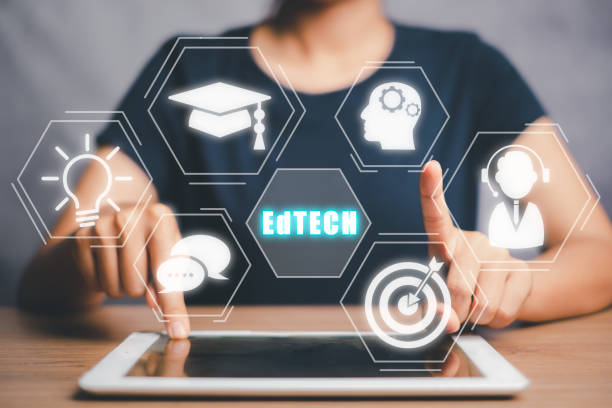Introduction:
The world of education has changed significantly in recent years with the advent of technology. The use of educational technology, or Edtech, has become increasingly popular as a means of enhancing teaching and learning. From online learning platforms to virtual classrooms, Edtech is having a profound impact on modern education, changing the way students learn and teachers teach. In this article, we will explore the various ways in which Edtech is transforming education and its effects on students, teachers, and the education system as a whole.
What is Edtech?
Edtech refers to the use of technology in education to improve teaching and learning. This can range from simple tools like educational apps to complex virtual learning platforms that provide access to a range of educational resources and tools. Edtech is designed to support and enhance the learning process, making it more interactive, engaging, and accessible for students.
The Benefits of Edtech for Students
Edtech has numerous benefits for students, including increased access to educational resources and a more engaging learning experience. Online learning platforms, for example, provide students with access to a wealth of educational resources, including videos, interactive lessons, and online discussions. This can be especially beneficial for students in remote or under-resourced areas, who may not have access to the same resources as their peers in more urban areas.
Edtech also provides students with a more interactive and engaging learning experience. For example, virtual reality and augmented reality tools allow students to experience learning in a new and exciting way, making subjects like science and history come to life. Additionally, gamification and interactive lessons can help keep students engaged and motivated, leading to increased participation and learning outcomes.
The Benefits of Edtech for Teachers
Edtech also provides numerous benefits for teachers. Virtual classrooms and online learning platforms allow teachers to reach a wider audience and reach students who may not have been able to attend traditional classes. This is especially beneficial for teachers in remote areas, who can now reach students from all over the world.
Edtech also provides teachers with a range of tools and resources to support their teaching. For example, online grading and tracking systems can help teachers keep track of student progress, while virtual and augmented reality tools can help bring subjects to life in a new and exciting way. Additionally, Edtech can help save time and reduce administrative tasks, freeing up teachers to focus on what they do best: teaching.
The Challenges of Edtech in Education
Despite its numerous benefits, there are also several challenges associated with the use of Edtech in education. One of the main challenges is the lack of access to technology for some students. In many areas, students may not have access to the technology or internet needed to take advantage of Edtech tools and resources. This can create an unequal playing field and perpetuate existing inequalities in the education system.
Another challenge is the cost of Edtech. While many online learning platforms and educational apps are free, others can be quite expensive, making it difficult for schools and educators to provide access to these resources. Additionally, there may be concerns about data privacy and security, especially when using online learning platforms that store student information in the cloud.
The Future of Edtech in Education
As technology continues to advance, it is likely that Edtech will play an even greater role in education in the years to come. From virtual and augmented reality tools to artificial intelligence and machine learning, there are numerous exciting developments on the horizon that have the potential to transform education.
However, it is important that we approach these developments with caution and consideration. While Edtech has the potential to greatly enhance the educational experience for students and teachers, it is important to ensure that it is used in a way that supports, rather than replaces, traditional teaching methods and that access to technology and resources is equal for all students.
Conclusion
Edtech is having a profound impact on modern education, changing the way students learn and teachers teach. It provides numerous benefits, including increased access to resources, a more engaging learning experience, and support for teachers. However, there are also several challenges associated with Edtech, including a lack of access to technology and concerns about data privacy and security. As technology continues to advance, it is important to approach these developments with caution and consideration, ensuring that Edtech supports, rather than replaces, traditional teaching methods and that access to technology and resources is equal for all students.

